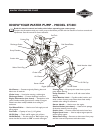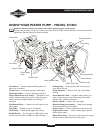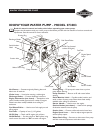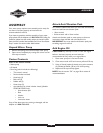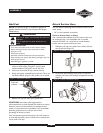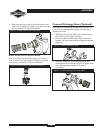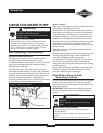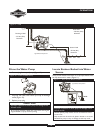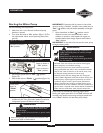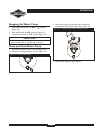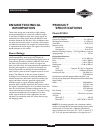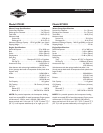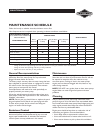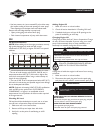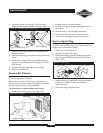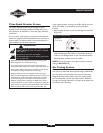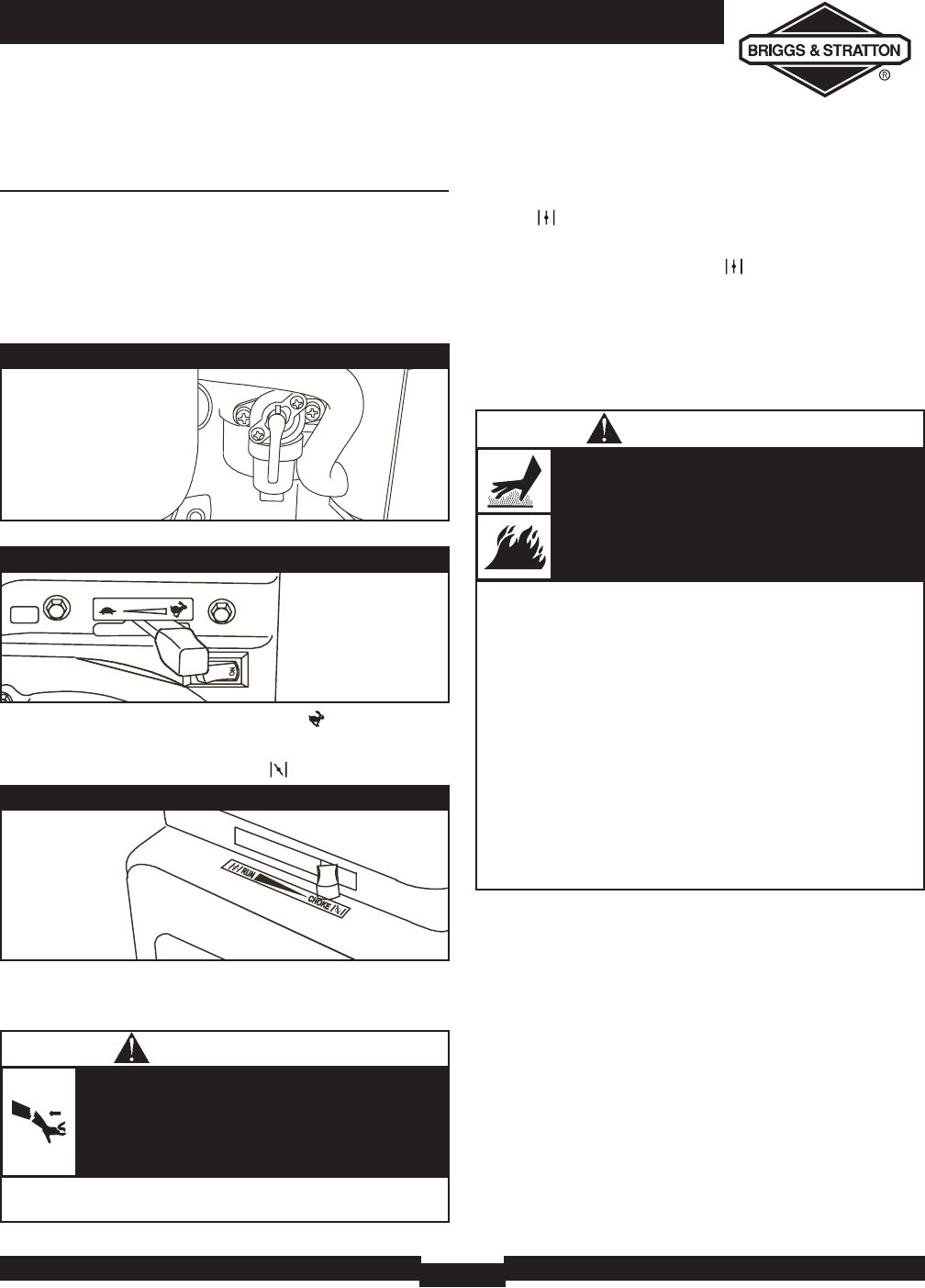
13
OPERATION
Starting the Water Pump
Use the following start instructions:
1. Make sure unit is on a flat, level surface and pump
chamber is primed.
2. Turn white fuel valve to “On” position (Figure 12).The
fuel valve handle will be vertical (pointing toward the
ground).
3. Push on/off switch to “On” position (Figure 13).
4. Move engine speed lever to “Fast” ( ) position
(Figure 13).
5. Move choke lever to “Choke” ( ) position (Figure 14).
6. Grasp recoil handle and pull slowly until slight
resistance is felt.Then pull handle rapidly to overcome
compression, prevent kickback and start engine.
IMPORTANT: If excessive fuel is present in the air/fuel
mixture causing a “flooded” condition, move choke lever to
“Run” ( ) position and pull handle repeatedly until engine
starts.
7. Move choke lever to “Run” ( ) position a short
distance at a time over several seconds in warm
weather or minutes in cold weather. Let engine run
smoothly before each change. Operate with choke in
“Run” position.
IMPORTANT: It may take a few minutes for water pump
to begin pumping water.
Pump output is controlled by adjusting engine speed.
Moving the engine speed lever in the “Fast” direction will
increase pump output, and moving the engine speed lever
in the “Slow” direction will decrease pump output.
• When starting engine, pull cord slowly until resistance is felt
and then pull rapidly to avoid kickback.
Rapid retraction of starter cord (kickback) will
pull hand and arm toward engine faster than
you can let go.
Broken bones, fractures, bruises or sprains could
result.
WARNING
Figure 13 — On/Off Switch and Engine Speed Lever
Switch is shown in
“On” position
Lever is shown in
“Fast” position
Figure 12 — Fuel Valve
Fuel Valve is shown in
“On” position
Figure 14 — Choke Lever
Choke Lever
shown in
“Choke”
position
• DO NOT touch hot surfaces and avoid hot exhaust gases.
• Allow equipment to cool before touching.
• The water pump must be at least 5 feet from structures
having combustible walls and/or other combustible materials.
• Keep at least 3 feet of clearance on all sides of water pump
for adequate cooling, maintenance and servicing.
• Reflective exhaust heat may damage fuel tank causing fire.
• Code of Federal Regulation (CFR) Title 36 Parks, Forests, and
Public Property require equipment powered by an internal
combustion engine to have a spark arrester, maintained in
effective working order, complying to USDA Forest service
standard 5100-1C or later revision.In the State of California a
spark arrester is required under section 4442 of the California
Public resources code. Other states may have similar laws.
Running engines produce heat.Temperature of
muffler and nearby areas can reach or exceed
150°F (65°C).
Severe burns can occur on contact.
Combustible debris, such as leaves, grass, brush,
etc. can catch fire.
WARNING



